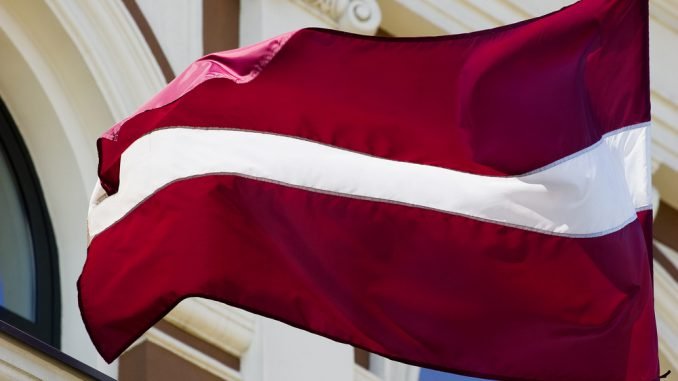
There has always been an element of competitiveness between Lithuania and its sisterly neighbour Latvia, so measuring which of the two countries has handled the Covid-19 crisis better is no exception. The overall number of cases and the daily statistics may be pointing towards Latvia’s advantage in fighting the virus but scientists are stressing that fewer diagnosed cases in Latvia are only due to the much smaller scale of testing performed so far, Monika Kasnikovskytė wrote in TV3.lt on July 24.
At the beginning of last month, the Latvian government re-introduced stricter safety measures following a significant increase of Covid-19 cases in the country (38 new cases in four days). The opening hours of catering businesses have been reduced, starting no earlier than 6am and finishing no later than midnight. Restrictions on the number of people gathering in bars and restaurants have been extended until 1st September. And it seems that these measures are paying off.
Praise for the Latvians
Romualdas Ražukas, a former Latvian MP, observes that new Covid-19 cases are indeed becoming very few and far in between. According to Mr Ražukas, the spike reported at the beginning of July was connected to one specific location – the coastal resort of Liepaja, where a group of people had visited several bars and restaurants during one night. Several other hotspots have been reported elsewhere in the country too, the majority of cases being brought in from abroad.

According to the former MP, Latvia’s fight against the pandemic has been particularly successful and the efforts of the Latvian government should be commended. ‘I can’t remember our government receiving much praise for anything (Mr Ražukas laughs – author’s note) but I think their response to this crisis has been very good and public opinion shows most Latvians agree with this,’ says Mr Ražukas.
Wearing of masks is not currently mandatory in Latvia; the use of other PPE is not required either. ‘Wearing of masks was at one point mandatory on public transport but this requirement has now been removed. Of course, if the situation deteriorates, this measure may be revisited,’ explains the former Latvian MP.
Covid-19 Latvia – fewer tests, fewer new cases
Despite Latvia’s apparent success in tackling the pandemic, Mindaugas Stankūnas, Professor at the Lithuanian University of Health Sciences emphasises that the overall number of reported cases depends on the scale of testing too. Lithuania is performing a much larger proportion of testing so comparing these numbers shows a different picture between the two neighbouring countries.
180,114 Covid-19 tests have been performed per 1 million people in Lithuania with the total number of tests reaching 489,869. To compare, the figures in Latvia are 98,270 tests per 1 million residents and 185,223 tests performed in total so far. ‘These statistics show that Lithuania is processing almost double the number of tests and testing is very dymanic compared to other countries <…>’ notes Mr Stankūnas.
Lithuania is currently ranked 15th in the world according to the number of Covid-19 tests performed per 1 million people.
It is important to stress that methods of recording new infections can differ too. When comparing the number of cases per one million people, for example, Lithuania and Latvia are not too dissimilar – 717 cases in Lithuania and 635 in Latvia.
‘The numbers reported in the media are absolute whereas epidemiologically the relative scale of infections is being measured, i.e. the number of cases per 100,000 or 1 million residents. Counting this way, both Lithuania and Latvia are showing very similar results but the scale of testing performed in Lithuania is much larger. This is one of the main reasons why Latvia’s statistics are currently lower,’ explains Prof. Stankūnas.
No large epicentres in Latvia
We also need to consider the fact that Latvia has not reported many (large) epicentres – unlike several spikes in Lithuania such as those in Klaipėda, Nemenčinė, Ukmergė, Kaunas. ‘Every hotspot is different and shouldn’t be generalised. Instead we need to look at what exactly happened in a specific location and why. The Latvian measures were not as strict as those in Lithuania. Having said that, our neighbours stuck to the quarantine rules quite well, which is supported by the data from ‘Google’ too,’ notes Mr Stankūnas.
According to the data on the 21st July, the total number of Covid-19 cases in Latvia was 1197 with 31 reported deaths. The corresponding numbers in Lithuania were 1951 infections and 80 deaths.
Important information for travelling to or through Latvia
The citizens and legal residents of Lithuania, Latvia and Estonia can travel within the three countries without any restrictions or isolation requirements, provided that during the last fortnight they have not visited any places with the reported 16 cases of Covid-19 per 100,000 people.
The list of countries from which entry into Lithuania is allowed is published on a weekly basis. It also includes the locations arrivals from which need to self-isolate.
EU borders with Latvia are currently open with flights and car/bus journeys in and out of the country permitted. Citizens, their families and permanent residents of Lithuania as well as other EU and EEA countries plus the UK and Switzerland are allowed to cross Latvia by any means of transport to return to their permanent country of residence.
As of 16th July Latvia is collecting contact details and the information on countries visited during the last 14 days from everyone travelling via Latvia. The appropriate forms will be issued to travellers by the transit company or a representative of the Latvian authorities.
Anyone travelling by plane, train, bus or ferry will be supplied the relevant form by the carrier whereas people taking car journeys or crossing the border by foot will have the opportunity to complete the form at the border if asked to do so by the Latvian authorities.


Be the first to comment